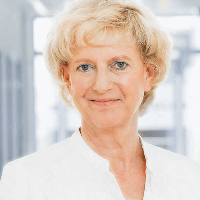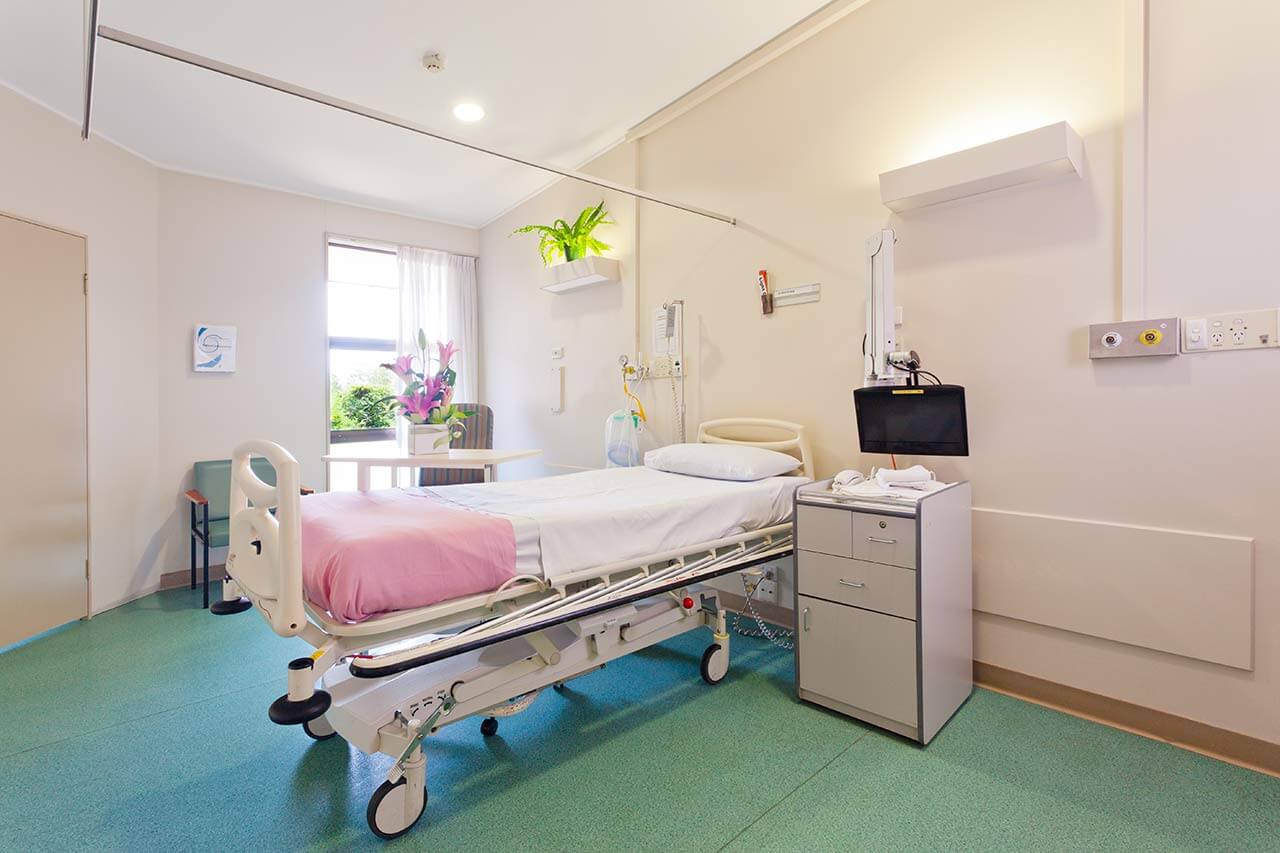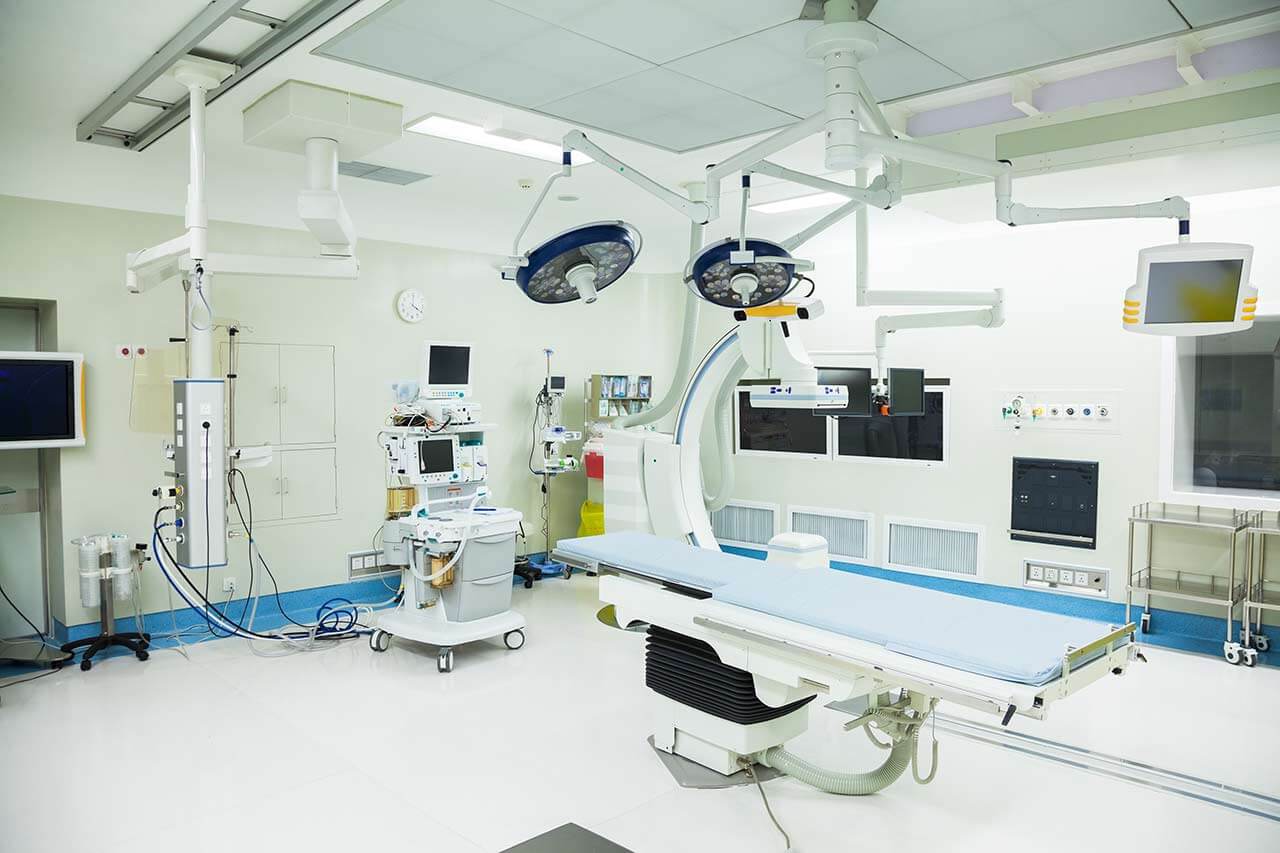
The program includes:
- Initial presentation in the clinic
- clinical history taking
- review of medical records
- physical examination
- laboratory tests:
- complete blood count
- biochemical analysis of blood
- inflammation indicators (CRP, ESR)
- indicators of blood coagulation
- blood gas analysis
- chest x-ray examination
- holter monitoring (24h)
- measurement of arterial blood pressure
- electrocardiogram (ECG)
- pulmonary function test
- echocardiography
- doppler echocardiography
- high-resolution computed tomography (HR-CT)/MRI (on indication 950/1200€)
- CT angiography (on indication 1300€)
- nursing services
- consultation of related specialists
- treatment by chief physician and all leading experts
- explanation of individual treatment plan
(the cost of medicines is not included)
Required documents
- Medical records
- Spirometry (if available)
- Chest X-ray (if available)
- ECG, EchoCG (if available)
Service
You may also book:
 BookingHealth Price from:
BookingHealth Price from:
About the department
The Department of Cardiology at the Hospital Bogenhausen Munich offers all the options of modern medicine for the diagnostics and treatment of cardiovascular diseases. The department specializes in drug therapy and interventional catheter-assisted procedures. To provide patients with the required surgical treatment, cardiologists cooperate closely with cardiac surgeons. The department's specialists use in their clinical practice only modern and highly effective treatment methods. The department has a Chest Pain Unit, which deals with the treatment of acute coronary syndrome and myocardial infarction. The Chest Pain Unit is certified in accordance with the requirements of the German Cardiac Society. In addition, the department has certificates from the German Cardiac Society in the field of transcatheter aortic valve implantation (TAVI) for aortic stenosis treatment, as well as in the treatment of atrial fibrillation and mitral valve pathologies. The department annually treats more than 5,700 patients with heart diseases. The Chief Physician of the department is Prof. Dr. med. Ellen Hoffmann.
The department is often visited by patients with suspected coronary artery disease. If the results of imaging and laboratory diagnostics confirm the diagnosis, the specialists perform catheter-assisted treatment of coronary stenoses and occlusions. Balloon dilation and stent implantation are the most effective procedures for restoring blood flow in the coronary vessels. If stent implantation is indicated for the patient, the doctors use modern drug-eluting stents or bioresorbable stents. When performing interventional procedures, the doctors use intravascular ultrasound and optical coherence tomography to control the delivery of a stent or balloon to the affected area of the coronary vessel and to securely fix them. In especially complex cases, the doctors resort to rotablation.
The department's team of cardiologists is proud of its rich experience and outstanding success in the treatment of aortic valve pathologies. One of the most common pathologies is aortic valve stenosis. The department's specialists successfully carry out sparing interventional treatment using an innovative technique – transcatheter aortic valve implantation (TAVI). The procedure is performed on a beating heart, without the use of a heart-lung machine. The undeniable advantages of this treatment method include speedy recovery after the intervention and minimal risks to the patient's health. The TAVI procedure is an excellent alternative to classic surgery, especially for elderly patients and patients with contraindications for open surgery. The cardiologists together with cardiac surgeons cooperatively perform more than 100 TAVI procedures every year, giving patients with aortic valve disease the opportunity to avoid open surgery and at the same time to get rid of the disease forever.
An equally important focus of the department's cardiologists is the treatment of mitral regurgitation using the MitraClip catheter-assisted technique. The main advantage of the procedure is its minimal invasiveness, thanks to which the patient can quickly recover and return to a full life. In addition, the department's specialists successfully perform mitral valvuloplasty, which involves the use of a balloon catheter to eliminate mitral valve stenosis and restore normal blood flow.
The department's service range is complemented by the diagnostics and treatment of arrhythmias: atrial fibrillation, tachycardia, Wolff-Parkinson-White syndrome and other pathologies. The main therapeutic options in this field include drug therapy, catheter ablation, cryoablation and electrical cardioversion. In case of severe forms of arrhythmia, the patient requires the implantation of a pacemaker or defibrillator, which is performed in cooperation with cardiac surgeons.
The department specializes in the diagnostics and treatment of the following cardiovascular diseases:
- Coronary diseases
- Aortic valve stenosis
- Mitral valve regurgitation
- Mitral valve stenosis
- Angina pectoris
- Atherosclerosis
- Arterial hypertension
- Hypertensive crisis
- Hypotension
- Brugada syndrome
- Myocarditis
- Cardiomyopathy
- Cardioneurosis
- Ischemic heart disease
- Long QT syndrome
- Arrhythmias
- Sinus tachycardia
- Ventricular tachycardia
- Supraventricular tachycardia
- Atrioventricular block
- Atrioventricular nodal reentry tachycardia
- Supraventricular and ventricular premature beats
- Atrial flutter
- Early repolarization syndrome
- Other heart diseases
The department's range of medical services includes:
- Non-invasive diagnostics
- Electrocardiography, including stress electrocardiography and ECG Holter monitoring
- Echocardiography and stress echocardiography
- Positron emission tomography
- Cardiac MRI with pharmacological stress test
- CT angiography
- Cardiac CT
- Cardiac MRI
- Invasive diagnostics
- Left heart catheterization (coronary angiography and ventriculography)
- Combined left and right heart catheter-assisted diagnostics
- Intravascular ultrasound
- Optical coherence tomography of the coronary vessels
- Fractional flow reserve measurement
- Intracoronary pressure measurement
- Pulmonary angiography
- Myocardial biopsy
- Catheter-assisted therapeutic procedures
- Balloon dilatation (percutaneous transluminal coronary angioplasty)
- Coronary stent implantation (drug-eluting stents and bioresorbable stents)
- Rotablation
- Balloon valvuloplasty
- MitraClip procedure
- Intra-aortic balloon counterpulsation
- Cardiohelp therapy for cardiogenic shock
- Other diagnostic and therapeutic options
Curriculum vitae
Prof. Dr. med. Ellen Hoffmann is the Head of the Department of Cardiology and Pulmonology at the Hospital Bogenhausen Munich. She enjoys a reputation as an internationally renowned cardiologist. Of particular clinical interest to the specialist is cardiac catheterization, percutaneous transluminal coronary angioplasty and coronary stenting.
Dr. Hoffmann is also actively involved in research activities, which mainly focus on the diagnosis and treatment of cardiac arrhythmias, for example, the diagnosis and treatment of atrial fibrillation using 3D mapping systems (Carto 3, NAVX), supraventricular arrhythmia ablation.
Prof. Ellen Hoffmann has extensive experience in the implantation if single- and dual-chamber pacemakers, defibrillators, cardiac resynchronization therapy, balloon dilatation for coronary occlusion, transcatheter aortic valve implantation, interventional procedures to close patent foramen ovale and atrial septal defects, mitral valve clipping in the case of its insufficiency.
Photo of the doctor: (c) München Klinik Bogenhausen
About hospital
According to the reputable Focus magazine, the Hospital Bogenhausen Munich ranks among the ten best medical centers in Bavaria and among the top 50 medical facilities in Germany!
The medical facility is the Academic Hospital of Ludwig Maximilian University of Munich. The modern hospital with the highest level of services annually provides treatment to more than 85,000 patients with clinical cases of varying severity. With 1,000 beds, the hospital is the largest medical complex in the region. It provides both inpatient and outpatient treatment. In addition, the hospital has a 24-hour emergency service. The hospital's medical team consisting of highly qualified doctors and nursing staff focuses on tailored medical care, since they are convinced that every patient and his clinical case is unique. All employees of the hospital strive not only to provide the most effective treatment to the patient, but also to make his hospital stay as comfortable as possible. The work of doctors is based on respect and humane attitude towards their patients.
The hospital includes 18 specialized departments. Each department is responsible for the treatment of a particular group of diseases. The hospital is distinguished by outstanding successes in the treatment of diseases of the cardiovascular system, lungs and airways, gastrointestinal tract, musculoskeletal system, nervous system and metabolic disorders. Of particular interest is the treatment of cancers, which is provided on the basis of the Cancer Center certified in accordance with the standards of the German Cancer Society. The doctors of the hospital have a large arsenal of innovative treatment methods available only in the leading medical centers in Europe.
The high level of medical care is confirmed by the prestigious certificates of professional german medical societies. These are certificates of the German Cancer Society in the treatment of colon, pancreatic and esophageal cancers, a certificate of the German Cardiac Society, a certificate of the German Trauma Society, a certificate of the German Stroke Society and others.
The hospital has excellent conditions for the provision of comprehensive medical care. Long clinical experience of doctors in combination with high-tech medical equipment allows the specialist to work miracles, curing severe diseases, which doctors from other hospitals cannot cope with. The specialists of the hospital take care of both the physical health of patients and their emotional state, devoting enough time to personal communication. The efforts of the medical team are aimed at providing the patient with the most effective treatment and at completу cure of pathology, if possible.
Photo: (с) depositphotos
Accommodation in hospital
Patients rooms
The patients of the Hospital Bogenhausen Munich live in comfortable and cozy rooms with light colors. The hospital offers accommodation in single and double patient rooms. Each patient room has an ensuite bathroom with shower and toilet. The hospital also has patient rooms specially equipped for disabled people. The standard patient rooms include an automatically adjustable bed, a bedside table, a wardrobe, a table and chairs for receiving visitors. The patient rooms have Wi-Fi.
The hospital also offers enhanced-comfort patient rooms with a safe, a mini fridge and upholstered furniture.
The hospital has a library with many interesting books, magazines, CDs and DVDs. For the convenience of patients, the hospital also houses a small shop, a hairdresser and a cafe on its territory.
Meals and Menus
The patient and the accompanying person are offered tasty and healthy three meals a day. The diet is quite varied. Only fresh and high-quality products are used when cooking. Breakfast and dinner are usually served buffet style, while for lunch one can choose from three menus, including a dietary one.
If you are on a specific diet for some reason, you will be offered an individual menu. Please inform the medical staff about your dietary preferences prior to the treatment.
Further details
Standard rooms include:
Religion
The religious services are available upon request.
Accompanying person
During the inpatient program, the accompanying person can live with the patient in a patient room or a hotel of his choice. Our managers will help you choose the most suitable option.
Hotel
During the outpatient program, the patient can stay at the hotel of his choice. Our managers will help you choose the most suitable option.




